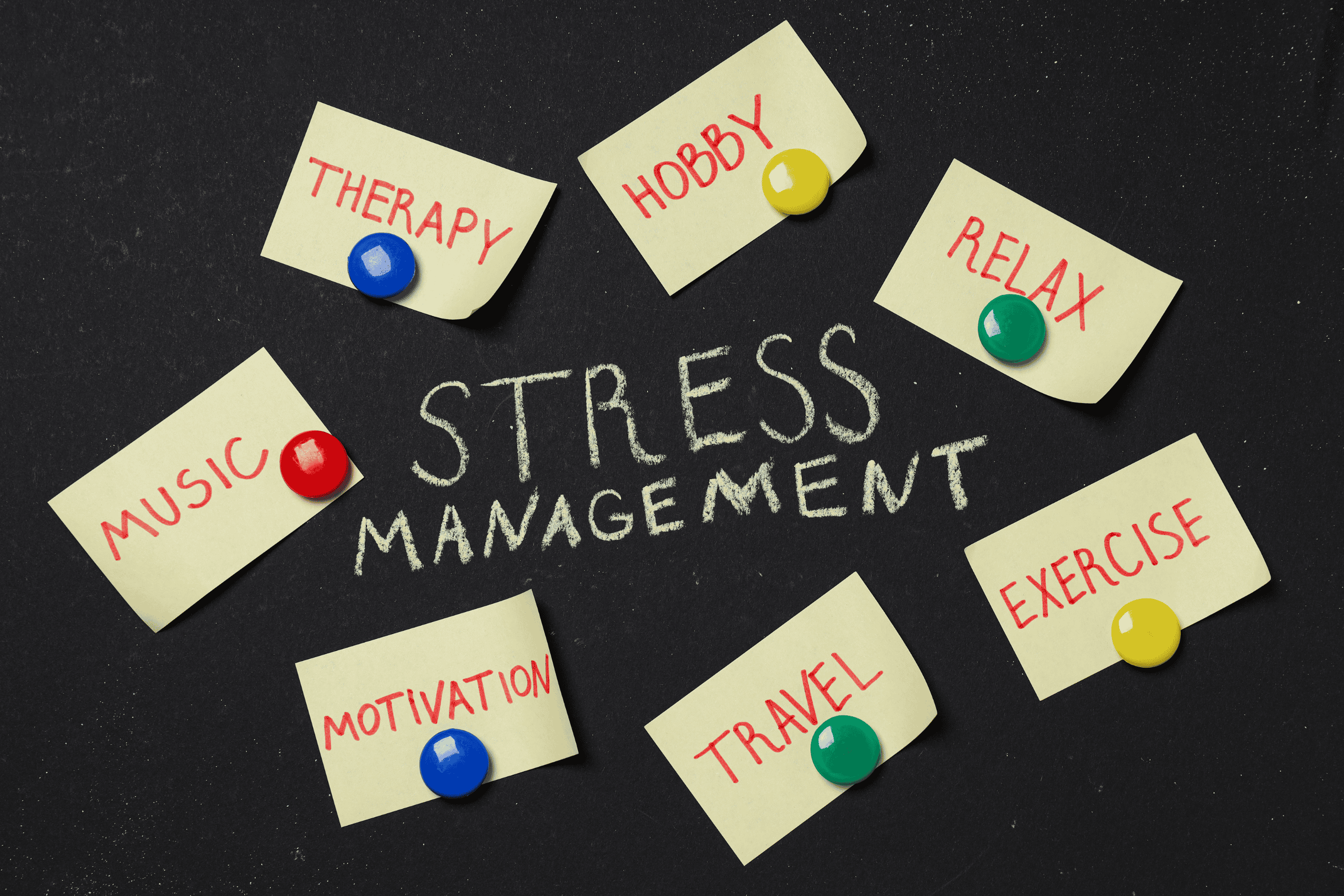
Mastering the Art of Stress Management: A Comprehensive Guide
Have you ever had to juggle a million tasks at once, only to feel like everything is slipping through your fingers? You wake up with a plan, but by midday, the to-do list has doubled, your inbox is overflowing, and every phone call seems to bring another urgent request. The tension builds, your focus fades, and suddenly stress takes over.
In fact, according to the American Institute of Stress, 77% of people regularly experience physical symptoms caused by stress, and 33% feel they live with extreme stress. In our fast-paced world, mastering stress management is more critical than ever. This comprehensive guide will delve into the art of managing stress effectively, offering practical strategies, expert insights, and recent research to help you regain control of your life and find peace amidst the chaos.
Understanding the Root Causes of Stress: Why We Feel Overwhelmed
Stress can come from many different sources, and understanding the root causes is key to managing it effectively. For many, stress stems from external pressures like work deadlines, financial obligations, or family responsibilities. According to the American Psychological Association (APA), work and money are two of the most common stressors for adults, with 64% of people citing these as significant sources of stress .
But stress isn’t always about what’s happening around us—sometimes, it comes from within. Perfectionism, fear of failure, or setting unrealistic goals can create a constant feeling of inadequacy. Psychologists note that individuals with high self-imposed expectations often experience more intense levels of stress and anxiety .
Additionally, factors like lack of sleep, poor diet, and insufficient exercise can compound stress levels. Research from the National Sleep Foundation shows that adults who don’t get enough sleep are more likely to report feelings of stress and tension . Similarly, a diet high in processed foods and sugars can increase stress, as shown in studies linking poor nutrition with higher cortisol levels, the body’s primary stress hormone .
By recognizing these triggers, both internal and external, we can take steps toward reducing stress and regaining a sense of balance.
Expert Insights on Stress Management
Dr. Kelly McGonigal, a health psychologist and author of The Upside of Stress, suggests that how we perceive stress can significantly impact its effects on our health. She emphasizes that viewing stress as a challenge rather than a threat can lead to positive outcomes. In her TED talk, McGonigal highlights that individuals who embrace stress can foster resilience and growth.
Recent research from the University of California, Berkeley, supports this perspective, showing that individuals with a positive mindset about stress are less likely to experience adverse health effects. This insight underscores the importance of reframing our relationship with stress, paving the way for healthier coping strategies.
Practical Strategies for Stress Management
- Mindfulness and Meditation
- Practicing mindfulness involves focusing on the present moment and observing thoughts without judgment. Studies have shown that mindfulness meditation can reduce stress, improve emotional regulation, and enhance overall well-being.
- A 2020 meta-analysis published in Psychological Bulletin found that mindfulness meditation significantly reduces anxiety and depression. Consider incorporating just ten minutes of mindfulness meditation into your daily routine to start reaping the benefits.
- Physical Activity
- Exercise is a powerful stress reliever. Engaging in physical activity releases endorphins, which act as natural mood boosters. A study published in the Journal of Clinical Psychiatry found that regular exercise can reduce symptoms of anxiety and depression.
- Whether it’s a brisk walk, yoga, or dancing, find an activity you enjoy. Aim for at least 150 minutes of moderate aerobic activity per week to experience the full benefits.
- Healthy Eating
- What we eat can influence our stress levels. A diet rich in fruits, vegetables, whole grains, and lean proteins can help stabilize mood and energy levels. In contrast, processed foods high in sugar and unhealthy fats can contribute to mood swings and increased stress.
- Research published in the American Journal of Psychiatry suggests that a Mediterranean diet, rich in omega-3 fatty acids and antioxidants, is associated with lower levels of anxiety and depression. Prioritize nutrient-dense foods to support your mental health.
- Sleep Hygiene
- Lack of sleep can exacerbate stress, creating a vicious cycle. Establishing a consistent sleep routine, creating a calming bedtime environment, and limiting screen time before bed can improve sleep quality.
- According to the National Sleep Foundation, adults should aim for 7-9 hours of quality sleep per night. Prioritizing rest is essential for effective stress management.
- Time Management and Organization
- One of the most common stressors is feeling overwhelmed by responsibilities. Effective time management can help alleviate this burden. Use planners, digital calendars, or task management apps to prioritize tasks and set realistic deadlines.
- The Pomodoro Technique, which involves working in focused intervals followed by short breaks, can boost productivity and reduce feelings of overwhelm.
- Social Support
- Connecting with friends and family can provide emotional support during stressful times. Sharing experiences and seeking advice from loved ones can help alleviate stress and promote a sense of belonging.
- A study published in the Journal of Health and Social Behavior found that social support is linked to better stress coping mechanisms and overall health. Make time for social interactions, whether in person or virtually.
Additional Stress Management Techniques
- Breathing Exercises
- Deep breathing exercises can activate the body’s relaxation response. Techniques like diaphragmatic breathing and the 4-7-8 method can help reduce stress levels quickly.
- Try inhaling for four counts, holding for seven, and exhaling for eight. Repeat this cycle for a few minutes to calm your mind and body.
- Journaling
- Writing down your thoughts and feelings can provide clarity and help process emotions. Journaling can serve as a therapeutic outlet, allowing you to reflect on your stressors and track your progress in managing them.
- Consider setting aside time each day to write about your experiences, feelings, or things you’re grateful for.
- Seeking Professional Help
- If stress becomes overwhelming or unmanageable, seeking help from a mental health professional is a crucial step. Therapists can provide valuable tools and techniques to cope with stress effectively.
- Cognitive Behavioral Therapy (CBT) has been shown to be effective in treating anxiety and stress-related disorders. A professional can guide you through tailored coping strategies.
The Importance of Self-Care
When you consistently prioritize self-care, you’re essentially giving yourself the tools to manage life’s pressures more effectively. Whether it’s carving out time for physical activity, practicing mindfulness, or simply getting enough sleep, these routines help to reduce stress hormones like cortisol and boost your overall well-being. By incorporating self-care into your daily life, you create a foundation that allows you to handle stress more calmly and with greater clarity.
- Engage in Hobbies: Make time for activities you enjoy, whether it’s painting, gardening, or reading. Hobbies provide a healthy escape and help reduce stress.
- Practice Gratitude: Cultivating gratitude can shift your focus from stressors to the positive aspects of life. Keep a gratitude journal and jot down three things you are thankful for each day. If you’d like detailed steps on practicing gratitude, I’ve previously discussed how fostering gratitude and positivity can have a transformative impact on overall well-being in the blog post: Cultivating Gratitude and Positivity: How Small Mindset Shifts Can Change Your Life. It’s a simple practice that can bring significant benefits to your mindset and stress levels.
- Limit Exposure to Stressors: Identify triggers in your environment or daily life and take steps to limit your exposure. This could involve setting boundaries with toxic relationships or reducing time spent on social media.
Conclusion
Mastering the art of stress management is not about eliminating stress entirely; it’s about developing the skills and strategies to navigate it effectively. By incorporating mindfulness, physical activity, healthy eating, and strong social connections into your life, you can cultivate resilience and enhance your overall well-being.
Remember, everyone experiences stress differently, and what works for one person may not work for another. Experiment with various techniques to find what resonates with you, and don’t hesitate to seek support when needed.
As you embark on this journey to manage stress, be kind to yourself. Recognize that stress is a part of life, but with the right tools, you can learn to respond to it in a way that fosters growth and inner peace.
End of Blog Post Citation:
- McGonigal, K. (2013). The Upside of Stress: Why Stress Is Good for You, and How to Get Good at It. Avery.
- American Psychological Association. (2021). Stress in America: Stress and Decision-Making During the Pandemic.
- American Journal of Psychiatry. (2019). The Mediterranean Diet and Mental Health.
- Journal of Clinical Psychiatry. (2020). Exercise and Depression: A Review.
- Journal of Health and Social Behavior. (2018). The Role of Social Support in Coping with Stress.
- Psychological Bulletin. (2020). Mindfulness Meditation and Its Effects on Mental Health: A Meta-Analysis.












